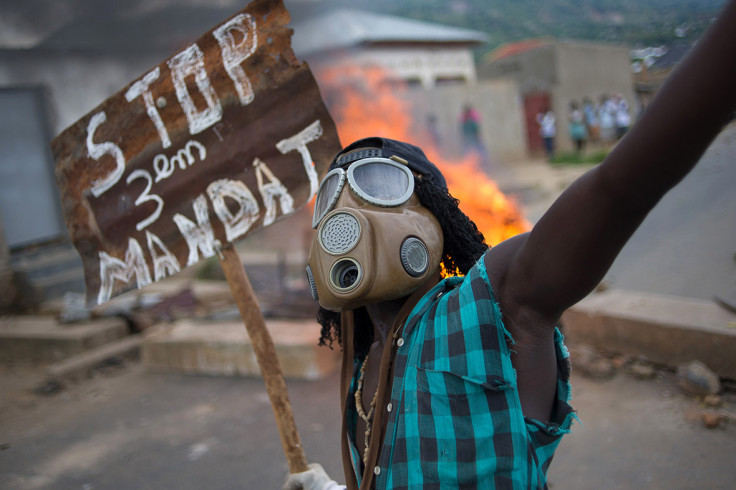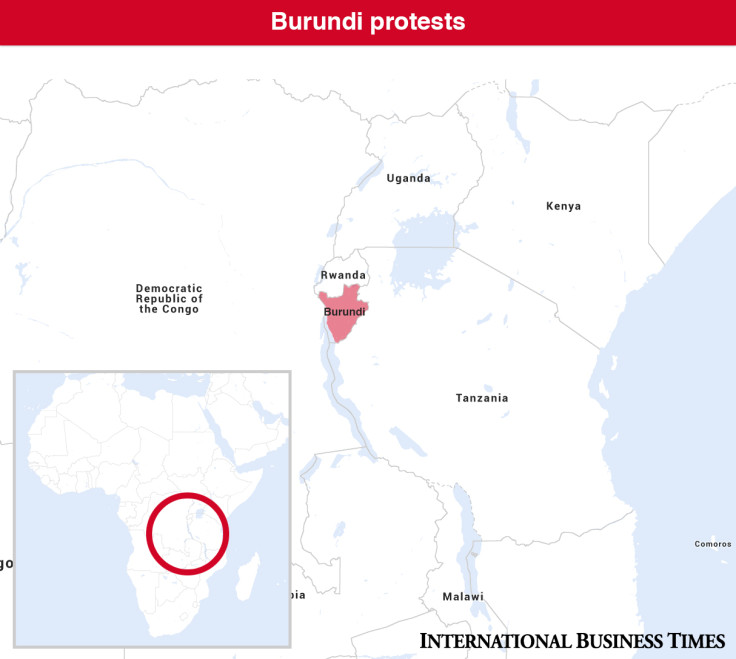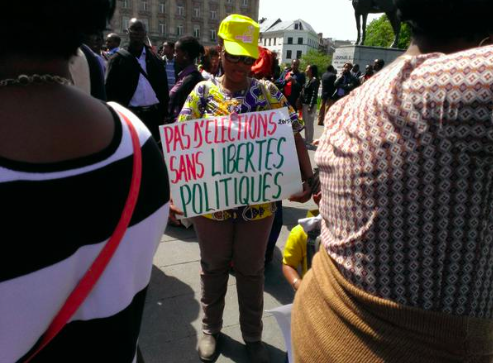Belgium suspends its assistance to the electoral process in Burundi

Brussels has suspended its financial support to the electoral process in Burundi, after thousands marched to the European Parliament on Sunday 11 May demanding Belgium step in and force Burundi's ruling party to postpone the upcoming elections.
Since 26 April, there have been protests in opposition to president Pierre Nkurunziza's "unconstitutional" decision to seek a third term, triggering violent protests that have rocked Burundi, claiming 20 lives by the end of last month.
Belgium ruled Burundi and Rwanda as a European colony known as Ruanda-Urundi after the WWI and is today one of Burundi's closest political allies.
'Conditions for free elections not met'
The Minister for Development Cooperation, Alexander De Croo, announced he was temporarily suspending the country's support to the Burundian electoral process.
Police cooperation is also suspended, the minister's office said in a statement on Monday 11 May.

"The Belgian development cooperation had planned a budget of €4m to support the elections in Burundi. A first tranche of €2m has already been paid. Deputy Prime Minister De Croo believes that in the current circumstances, the payment of the remaining €2m should be suspended," said the statement.
The Election Observation Mission of the European Union in Burundi (EU EOM) reported last week that the conditions for free elections were not met.
Frustrations at European Union's silence
Burundi opposition have also been calling on the EU to suspend €8m of financial assistance it committed to support the African country's controversial upcoming elections.
The EU's assistance is the main financial contribution to fund the Project to Support the 2015 Electoral Cycle in Burundi – dubbed PACE 2015 – which currently stands at €15m (£11m, $17m).
"We believe the EU's €8m is a considerable sum. It is shocking that the EU is financing these elections which are killing people, forcing voters of the opposition to flee the country like refugees," Pancrace Cimpaye, spokesman for the Alliance for Democratic Change (ADC-IKIBIRI), one of the country's largest opposition parties, told IBTimes UK.
"It would be unacceptable for the European taxpayer to agree that €8m, which can be used for something else, should be thrown in the trash like that. If these elections are forced to happen, there will be a civil war."
On Sunday 10 May, Many demonstrators on the 1,000-strong walk towards Brussels' Place du Luxembourg, located close by the European Parliament, spoke of their frustration at Belgium's silence.

'Call the elections off'
At the march, Cimpaye explained how the European Union should also call the elections off while police and militia forces continue firing on peaceful demonstrators.
"It's even cynical, discourteous that a European-type democracy is at the other end of the barrel. It simply can not work, and our so-called European democracy must have the same conditions."
He continued: "People living 10,000 km from Bujumbura do not know the drama that is happening, even if the United Nations and its Security Council know of the (pro-government) Imbonerakure militia who started the killings."
"Are twenty persons killed still not enough? How many do we need for these countries and the entire world to move? Will we need another 100 killed? 200?" he said, pointing to Burundi's 12-year ethnic-based civil war that killed 300,000 and internally displaced 800,000.
When contacted by IBTimes UK, an EU spokesperson said European leaders believe that "genuine, credible and inclusive elections" where all parties are comfortable to participate and which respect civil liberties, political rights and freedom of expression, "should be part of the political solution to the crisis".
The EU is committed to supporting the electoral process but this support "can be suspended at any moment if the EU and other partners assess that it is impossible to achieve the aim of genuine, credible and inclusive elections".
© Copyright IBTimes 2025. All rights reserved.





















